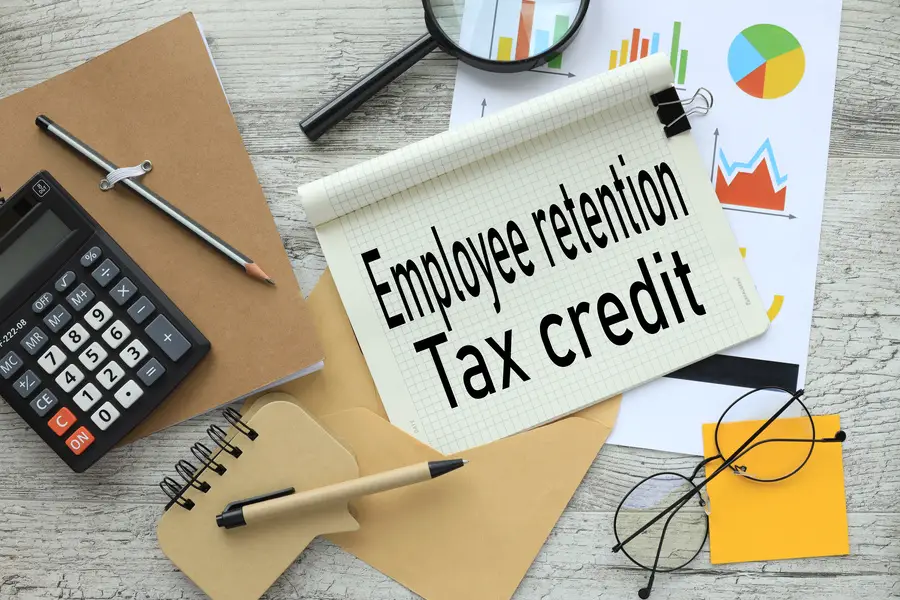Your business should generally maximize current year depreciation write-offs for newly acquired assets. Two federal tax breaks can be a big help in achieving this goal: first-year §179 depreciation deductions and first-year bonus depreciation deductions. These two deductions can potentially allow businesses to write off some or all of their qualifying asset expenses in Year 1. However, they’re moving targets due to annual inflation adjustments and tax law changes that phase out bonus depreciation. With that in mind, here’s how to coordinate these write-offs for optimal tax-saving results. §179 deduction basics Most tangible depreciable business assets — including equipment, computer hardware, vehicles (subject to limits), furniture, most software and fixtures — qualify for the first-year Sec. 179 deduction. Depreciable real property generally doesn’t qualify unless it’s qualified improvement property...

Are you dreaming of buying a vacation beach home, lakefront cottage or ski chalet? Or perhaps you’re fortunate enough to already own a vacation home. In either case, you may wonder about the tax implications of renting it out for part of the year. Count the days The tax treatment depends on how many days it’s rented and your level of personal use. Personal use includes vacation use by your relatives (even if you charge them market rate rent) and use by nonrelatives if a market rate rent isn’t charged. If you rent the property out for less than 15 days during the year, it’s not treated as “rental property” at all. In the right circumstances, this can produce significant tax benefits. Any rent you receive isn’t included...
Uncertainty about inflation, regulations and geopolitical risks abounds in today’s marketplace. A fairness opinion can protect against costly litigation if your company engages in a major transaction and the projected results subsequently fall short of expectations or insolvency becomes likely. Here’s how a fairness opinion from an independent business valuator can help protect against post-deal legal claims. The basics Simply put, a fairness opinion addresses whether a transaction appears “fair” from a financial point of view. Fairness opinions help confirm that dealmakers fulfilled their fiduciary duties to act in the best interests of the company and its shareholders. However, fairness opinions don’t address legal or structural fairness, nor do they constitute an endorsement or a guarantee of a particular transaction. When preparing a fairness opinion, the expert typically...
If your small business is strapped for cash (or likes to save money), you may find it beneficial to barter or trade for goods and services. Bartering isn’t new — it’s the oldest form of trade — but the internet has made it easier to engage in with other businesses. However, if your business begins bartering, be aware that the fair market value of goods that you receive in these types of transactions is taxable income. And if you exchange services with another business, the transaction results in taxable income for both parties. Fair market value Here are some examples of an exchange of services: A computer consultant agrees to offer tech support to an advertising agency in exchange for free advertising. An electrical contractor does repair work...
Some people mistakenly believe that Social Security benefits are always free from federal income tax. Unfortunately, that’s often not the case. In fact, depending on how much overall income you have, up to 85% of your benefits could be hit with federal income tax. While the truth about the federal income tax bite on Social Security benefits may be painful, it’s better to understand it. Here are the rules. Calculate provisional income The amount of Social Security benefits that must be reported as taxable income on your tax return depends on your “provisional income.” To arrive at provisional income, start with your adjusted gross income (AGI), which is the number that appears on Page 1, Line 11 of Form 1040. Then, subtract your Social Security benefits to arrive at your adjusted...
The qualified business income (QBI) deduction is available to eligible businesses through 2025. After that, it’s scheduled to disappear. So if you’re eligible, you want to make the most of the deduction while it’s still on the books because it can potentially be a big tax saver. Deduction basics The QBI deduction is written off at the owner level. It can be up to 20% of: QBI earned from a sole proprietorship or single-member LLC that’s treated as a sole proprietorship for tax purposes, plus QBI from a pass-through entity, meaning a partnership, LLC that’s treated as a partnership for tax purposes or S corporation. How is QBI defined? It’s qualified income and gains from an eligible business, reduced by related deductions. QBI is reduced by: 1) deductible...
Occupational fraud is a crime generally committed by employees against their employers. Ironically, employees also are most likely to notice or suspect occupational fraud schemes conducted by their coworkers or managers. Whether they report through an anonymous tipline or directly to management or HR, rank-and-file workers often are the first to raise the alarm. If an employee alleges that someone has committed theft or fraud, or simply exhibits suspicious behavior, it’s your responsibility to take the charges seriously and investigate them. Here’s how. Preliminary digging If you receive a fraud tip, you’ll need to assess its validity by conducting preliminary interviews — even if you plan to eventually turn the investigation over to legal and fraud experts. To help avoid unnecessary legal complications, keep details of any allegation...
Unemployment has been holding steady recently at 3.7%. But there are still some people losing their jobs — particularly in certain industries including technology and media. If you’re laid off or terminated from employment, taxes are likely the last thing on your mind. However, there are tax implications due to your altered employment circumstances. Depending on your situation, the tax aspects can be complex and require you to make decisions that may affect your tax bill for this year and for years to come. Be aware of these three areas. (1) Unemployment and payments from your former employer Many people are surprised to find out that federal unemployment compensation is taxable. (Some states exempt unemployment comp from state tax.) In addition, payments from a former employer for any...
We are finding that, all too often, taxpayers that make Employee Retention Tax Credit (ERTC) claims by engaging a so-called “ERTC Mill” are never told of their responsibility to amend their applicable prior year federal income tax return(s), and are shocked to learn that they owe additional taxes, penalties and interest. In order to offset their wage expense for the amount of the credit claimed, taxpayers who file an amended Form 941-X to claim an ERTC refund must simultaneously file an amended income tax return(s) for the tax year(s) in which the ERTC-eligible wages were paid. Because of the resulting lower salary expense, this results in a higher tax burden for taxpayers with sizable ERTC refunds. Reasonable Cause Penalty Relief To the extent an ERTC was retroactively claimed,...
The credit for increasing research activities, often referred to as the research and development (R&D) credit, is a valuable tax break available to certain eligible small businesses. Claiming the credit involves complex calculations, which we’ll take care of for you. But in addition to the credit itself, be aware that there are two additional features that are especially favorable to small businesses: Eligible small businesses ($50 million or less in gross receipts for the three prior tax years) may claim the credit against alternative minimum tax (AMT) liability. The credit can be used by certain smaller startup businesses against their Social Security payroll and Medicare tax liability. Let’s take a look at the second feature. The Inflation Reduction Act (IRA) has doubled the amount of the payroll tax...
- 1
- 2
- 3
- 4
- 5
- 6
- 7
- 8
- 9
- 10
- 11
- 12
- 13
- 14
- 15
- 16
- 17
- 18
- 19
- 20
- 21
- 22
- 23
- 24
- 25
- 26
- 27
- 28
- 29
- 30
- 31
- 32
- 33
- 34
- 35
- 36
- 37
- 38
- 39
- 40
- 41
- 42
- 43
- 44
- 45
- 46
- 47
- 48
- 49
- 50
- 51
- 52
- 53
- 54
- 55
- 56
- 57
- 58
- 59
- 60
- 61
- 62
- 63
- 64
- 65
- 66
- 67
- 68
- 69
- 70
- 71
- 72
- 73
- 74
- 75
- 76
- 77
- 78
- 79
- 80
- 81
- 82
- 83
- 84
- 85
- 86
- 87
- 88
- 89
- 90
- 91
- 92
- 93
- 94
- 95
- 96
- 97
- 98
- 99
- 100
- 101
- 102
- 103
- 104
- 105
- 106
- 107
- 108
- 109
- 110
- 111
- 112
- 113
- 114
- 115
- 116
- 117
- 118
- 119
- 120
- 121
- 122
- 123
- 124
- 125
- 126
- 127
- 128
- 129
- 130
- 131
- 132
- 133
- 134
- 135
- 136











